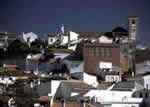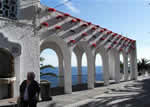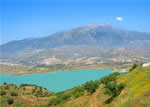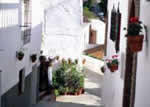
John Hooper’s ‘The New Spaniards’ a book review by Rose Jones which looks into the what’s and why’s of Spain now.
What do you know about Spain? A little first hand experience prompts dozens of questions. Why is there so much corruption (if you haven’t heard of any corruption here, check out the current investigations into Marbella council)? Why don’t the Spanish need to sleep? Why are they so incredibly noisy? And why is everyone over forty so short?
You can try to get the answers through hints and guesses. But to really get a handle on the what’s and why’s of Spain now – and where it is going – I have to recommend John Hooper’s ‘The New Spaniards’ (second edition).
Don’t imagine it is a dry historical account. From a centralised, prudish, intolerant, rigidly conservative, homogenous dictatorship to a decentralised, permissive, tolerant, liberal multi-ethnic society in just little more than thirty years, you get some idea of how such radical fast change came about and how it affected Spain and the Spanish.
Hooper gives you an overview of Spain’s change from a dictatorship to a democracy – he explains events right up to the surprise win at the last election. It’s not just that you find out that Spain’s changed from the 70s’ when the protesters’ favourite chant was ‘España, mañana, sera republicana’ (Spain, tomorrow, will be a republic) to being full of monarchists – or at least ‘juan-carlists’ – fans of the present King. It isn’t simply that you discover that there was a failed Coup d’Etat, when Lieutenant Colonel Tejero, gun in hand, marched his men into parliament (during a broadcast debate), yelled ‘¡Se sienten, coño!’ and let off a volley of shots. It’s not just that you discover how the 2004 election result was a most improbable turn-around. This book actually gives you a handle on the reasons why.
As well as a historical overview he covers the big social influences – from the church to the media, from the army to regional nationalism. He backs up his descriptions of what’s happened and is happening with solid facts and figures, but rarely lets these become tiresome detail, getting in the way of the story. Or indeed his own opinion; I like his description of Spanish coffee as ‘the gastronomic equivalent of Semtex.’
If I have a criticism, it is that, perhaps because of his involvement in journalism, he gives too much attention to media, and especially to the arts, overwhelming the reader with detail on the development of every kind, from opera to theatre to flamenco, to ballet. I’m quite interested in the arts in general, but this was too much for me. But this was a minor distraction the real power of the book. It is a clear, addictively exciting account of the radical social changes that have made Spain the country she is today, and that hint at what she will become.
The New Spaniards by John Hooper is available in Todo Papel



















